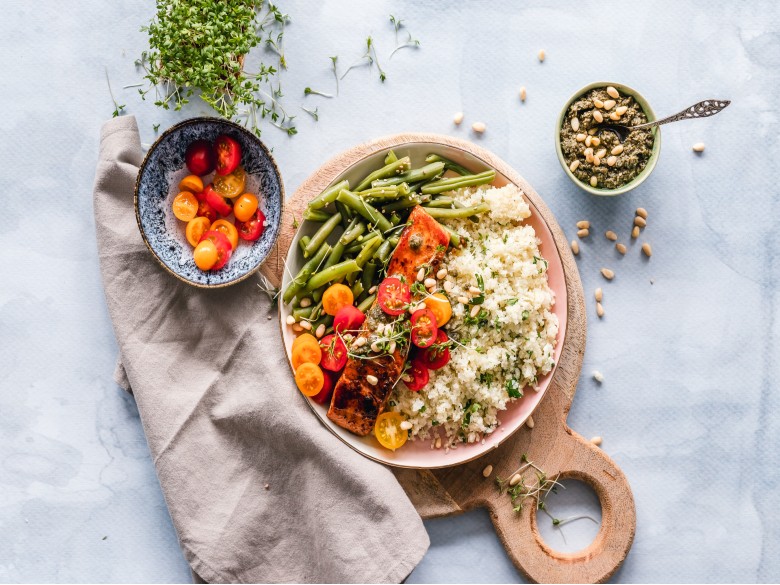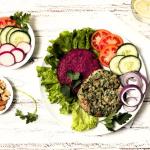
Eating healthy is a good thing. Some people do not eat healthy foods because they are not as palatable as other foods. In other words, they believe healthy foods do not taste as good as carbohydrate-rich, fatty, or sugary foods.
However, eating healthy is essential to your survival. It will ensure you stay alive for as long as possible.
Before we discuss how you can encourage your faith-based communities to eat healthy foods, let’s take a look at the Bible.
Does The Bible Say Anything About Eating Healthy
The Bible contains so much information about so many things, including how to eat healthily. You can use the Bible to encourage or persuade your church community to eat healthier.
While there are many more scriptures in the Bible focused on healthy eating, these are just a few scriptures you can use to encourage your church to eat healthier.
According to 1 Corinthians 6:12, all things are lawful, but everything is not beneficial. Yes, food is lawful. You need food to survive.
However, not all food is beneficial. Over time, some foods like sugary or fried foods may promote weight gain and increase the risk of developing disease. So it’s best to consume these foods in moderation.
Proverbs 23:2-3 says put a knife to your throat if you have a great appetite. The Bible is warning us to be careful about the amount of food we eat. Another example of this is Proverbs 25:16. It says that we should only eat a sufficient amount of honey; otherwise, we will vomit.
In other words, too much of any food is never a good thing. You should encourage your community to use self-discipline and eat foods in moderation.
6 Ways You Can Get Your Church Community To Eat Healthy Foods
Eating healthy foods is not as hard as it seems. These are 6 ways you can get your church community to eat healthier.
Educate Your Community
Education is important, especially when it’s regarding nutrition. Many studies have shown that unhealthy diets can increase the risk of disease.
In fact, an unhealthy diet filled with foods high in calories, sugars, and saturated fats can lead to the progression and development of Nonalcoholic Fatty Liver Disease (NAFLD), the most common form of liver disease. In contrast, meal planning, meal timing, fasting, and exercise may prevent and help treat NAFLD.
Another observational study found people who ate more ultra-processed foods were at an increased risk of developing cardiovascular, coronary heart, and cerebrovascular diseases. Even though more research on ultra-processed diseases and their effects on the body needs to be conducted, many studies show the harmful effects that specific foods can have on our bodies.
Ultimately, your church members can’t do better if they don’t know better. Educating your church members on the effects that not eating healthy can have on their bodies can encourage them to do better.
Purchase Less Soft Drinks And High-Calorie Foods
Soft drinks and high-fat and high-calorie foods like pizza, cookies, and chips are staples at church events. You can still have these foods at your events but in moderation. For example, if your church hosts youth night on Friday, you can have pizza on the last Friday of the month. You can serve healthier options like vegetable trays, fresh fruit salad, or deli sandwiches on whole grain bread on the other nights. There may be a little resistance, but over time and with a little education, people will become open to eating healthier foods.

Start Small
Do not try to change everyone’s minds by making an entire spread of healthy foods at your next church event. People probably won’t eat much of the food.
Start by adding one healthy dish. Encourage your community members to try the dish to see if they like it. If they like it, you can gradually start adding another healthy dish at the next event, and so on.
If they do not like the healthy dish, go back to the drawing board. Keep trying until you create a dish they love.
You can also start small by making sure there are at least 1-2 vegetable or fruit dishes at each event. Although you can’t force people to eat them, it’s always good to have healthy options at every event.
Add Vegetables To Your Sauces
If you are serving pasta, use tomato sauce or vegetable sauces. People already love tomato sauce, so it will not be a big deal. Tomato sauce is made from tomatoes, so it is healthy. Look for no-sugar-added tomato sauce for the best results.
If you are making mac and cheese, pureed butternut squash sauce is a much healthier version of cheese sauce. Alternatively, you can sneak more vegetables into pasta-based dishes by pureeing the vegetables. For example, add 1 cup of butternut squash puree or blended sautéed onions and bell peppers to your mac and cheese. Cheese has a rich, dominant flavor. No one will know they are eating an extra serving of vegetables.
Use Oil Or Butter Substitutes In Cakes And Cookies
If you are making cakes and cookies, there are many options to make them healthier. For example, you can replace butter or vegetable oil with healthier fats.
Not all fats are bad for you. Avocado oil contains bioactive compounds associated with preventing cardiovascular disease, cancer, and age-related macular degeneration.
Other healthy butter substitutes include applesauce, mashed sweet potato or avocado, olive oil, and fruit purees.
If you are skeptical about using butter or oil substitutes in your cake, look for an oil free-cake or cookie recipe. This oil-free, gluten-free coffee cake recipe is a good option. If you do not like the recipe, you can keep searching for oil-free cake and cookie recipes until you find one that’s perfect.
Use Whole Grains Instead Of Refined Grains
It is not my goal to discourage people from eating carbs. We need carbs to produce energy.
Every carb is not a good carb, which is why you should eat healthier carbs like whole grains. Whole grains contain large amounts of fiber, which can reduce the risk of specific cancers, cardiovascular diseases, type 2 diabetes, and gastrointestinal disorders.
Whole grain options you can include at your next event include whole wheat bread or pasta, brown rice, quinoa, oats, millet, spelt, bulgur, and faro.
Getting your church to eat healthier may not be easy. However, you can start by educating them. Look to the Bible for ways to encourage them.
Educate them on the years of scientific research about nutrition and diseases, and use the remaining tips to create healthier options at your church events. Eventually, you will see small changes, like people trying the healthy foods you prepared, and big changes, like your church members making dietary changes in their homes.












